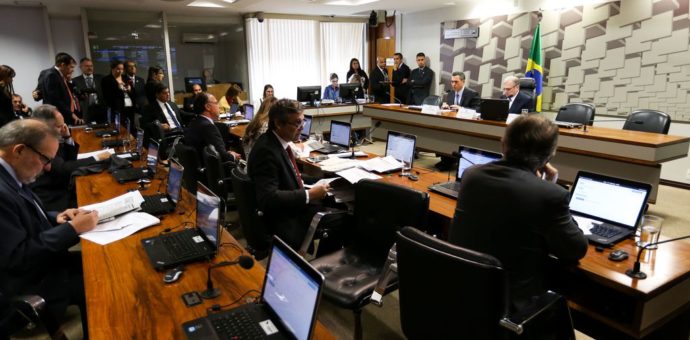The significant volume of funds traded in cryptoasset transactions demands an imminent specific regulation that is being proposed in the Senate through three bills: PL 3.825/2019, by Flávio Arns (Podemos-PR), PL 3.949/2019, by Styvenson Valentim (Podemos-RN) and PL 4.207/2020, by Soraya Thronicke (PSL-MS).
The regulatory framework for cryptoassets has been under debate for almost three years in the Senate. In December, another public hearing was held on the topic. Senator Irajá (PSD-TO), the rapporteur of the subject, presented his opinion in the form of a substitute, which should return to the deliberation agenda of the Economic Affairs Commission (CAE) in February.
For Flávio Arns, author of the first project presented on the subject in the House, it is essential to vote on the project as soon as possible in the Commission.
“We expect that it will be put to the vote at the beginning of the year. We know that this project is important for virtual currencies’ impact in the operations carried out with cryptoassets in electronic trading platforms. But mainly to combat crimes related to the fraudulent use of virtual assets”, said the senator from Paraná.
In Brazil, cryptoasset trading companies are not expressly subject to regulation, either by the Central Bank or the Securities and Exchange Commission (CVM), making it more difficult for the government to identify suspicious transactions, according to Senator Irajá.
For the rapporteur, the regulatory framework creates a transparent business environment for cryptocurrencies:
“The media itself has disclosed cases of financial pyramids causing damage to companies and citizens. The cryptocurrency market has doubled in size since 2019, and this milestone encourages it to continue growing but fighting financial pyramids, evasions, and other crimes”, he explained.
Guidelines
The substitute defines a virtual asset as a digital representation of value that can be traded or transferred electronically and used for payment or investment purposes. In other words, they are currencies traded exclusively over the internet, excluding from this list sovereign currencies (issued by governments) and electronic currencies.
Cryptocurrencies were born from cryptography, a set of techniques to protect information. In this case, the cryptocurrency holder can only redeem it using a code provided by the seller. Worldwide, Bitcoin is the best-known cryptocurrency.
Companies known as exchanges or virtual asset brokers are responsible for working with cryptocurrency funds.
In the text, the rapporteur classifies the virtual assets service provider as the company that performs, on behalf of third parties, at least one of these services:
- Redemption of cryptocurrencies (exchange for sovereign currency)
- Exchange between one or more cryptocurrencies
- Transfer of virtual assets
- Custody or administration of these assets or virtual assets control instruments
- Participation in financial services related to the offer by an issuer or sale of virtual assets
While Senators Soraya and Flávio Arns defined, respectively, that the Federal Revenue and the Central Bank should be the regulators of the virtual currency market, Irajá proposed that it will be up to the Executive Branch to define which bodies will regulate and supervise business with cryptocurrencies.
The rapporteur’s proposal is that the Executive establishes standards aligned with international standards to prevent money laundering and concealment of assets and combat the actions of criminal organizations.
Senator Soraya proposed, and the rapporteur maintained the idea of establishing a National Register of Politically Exposed People (CNPEP).
Irajá has defined that it will be up to the Brazilian Office of the Comptroller General (CGU) to standardize.
Source: Senate Agency







